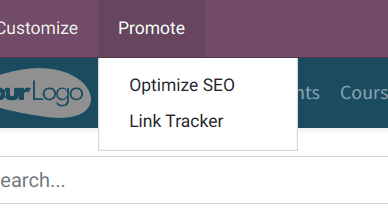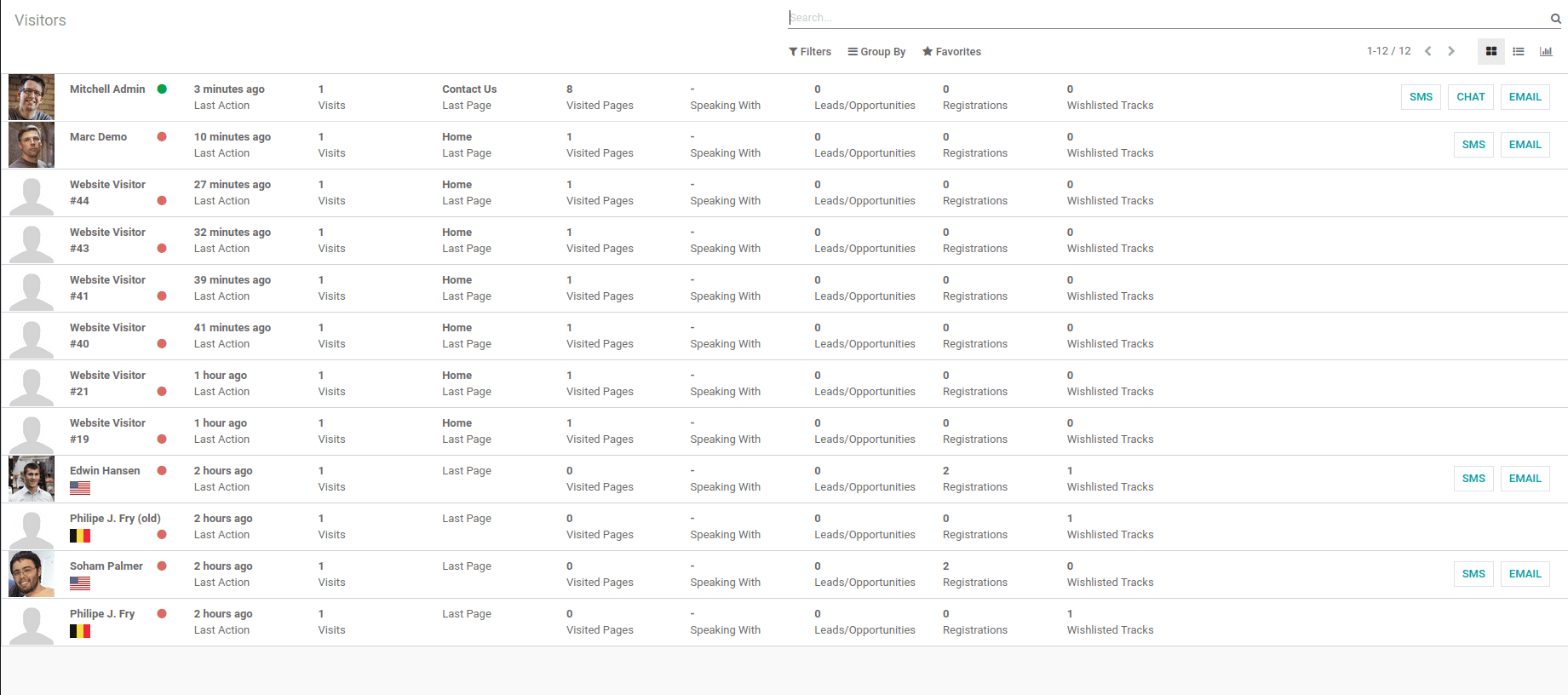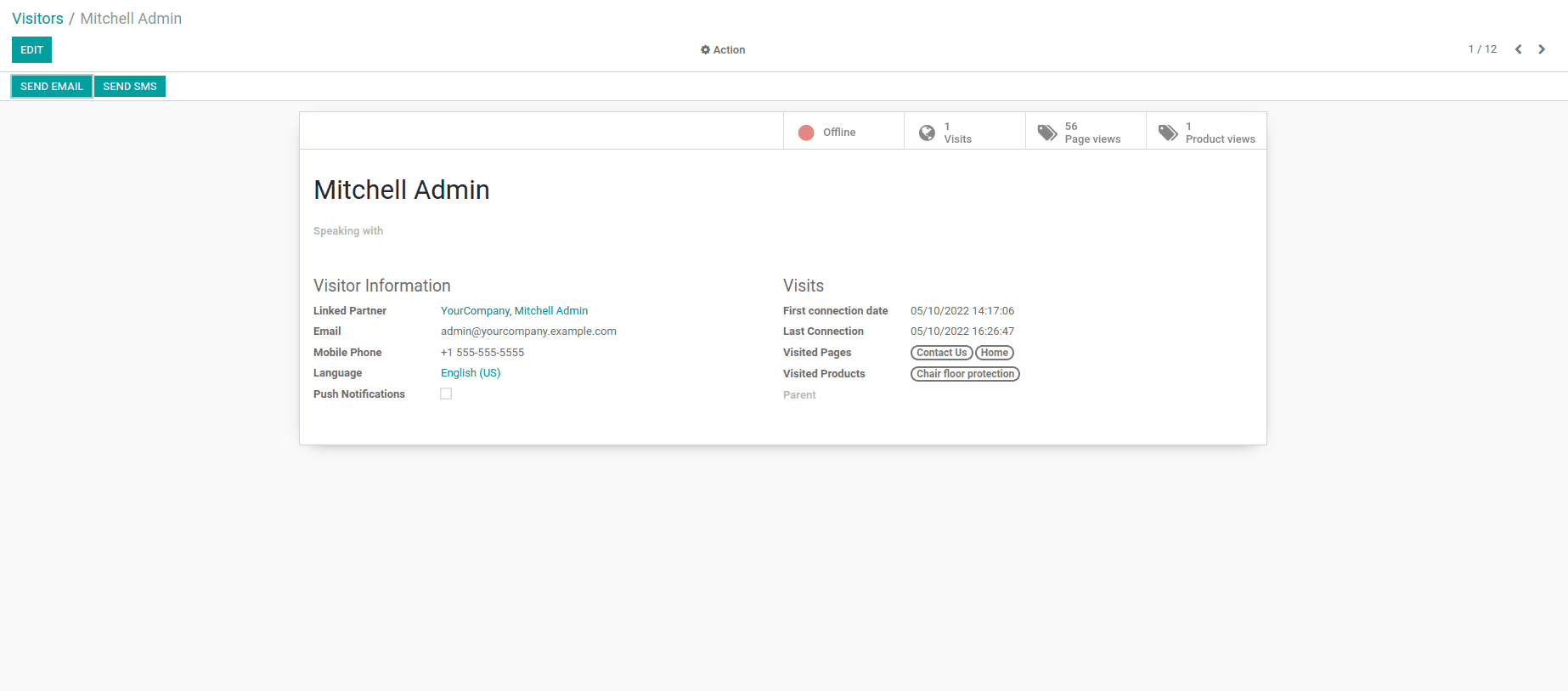Manage SEO Options
The Search Engine Optimization (SEO) is that the process of optimizing your website or
webpage to extend the ranking and traffic in search engines like Google For getting more
visitors to your company website, you must need a decent SEO, and therefore the Odoo
platform provides you the assorted SEO supporting options, and this could be configured
within the settings menu of the website module. Built-in SEO support for Odoo templates
like web pages. Some templates are used with multiple URLs. As an example, in a web
store, product pages are rendered using identical templates and different product
records. In such cases, each URL requires different SEO options. Under the SEO tab, you
can see a number of options and enable Google Analytics, and the console Google Look for
better SEO integration. You will now be ready to see the SEO optimization option on your
website. You can access it in the Optimize SEO menu under the Promote option. You will
get an SEO dialog from the Promote drop-down menu at the top, as shown in the image
below:

You can perform the operations by selecting the Optimize SEO menu. The Web Page Title and
outline may be provided. The search engines are uses this information to market your
website. Then you'll be able to allocate the Keyword. These keywords are the search keys
that you simply want to steer to your website. you'll also select a picture for social
share.
To enable SEO on each record of the model, you will need to inherit the
website.seo.metadata mixin in your model. This will add a few fields
and methods to your model. These fields and methods will be used from the website to
store separate data for each record on your module.
class YourModule(models.Model):
_name = your.model
_inherit = ['website.seo.metadata']
name = fields.Char(Name, required=True)
date = fields.Date('Date')
If you want to see fields and methods for the SEO mixin, search for the
website.seo.metadata model in the
/addons/website/models/website.py file.
All SEO-related code is written in the website.layout, and it gets all the SEO
meta-information from the recordset passed as main_object. Since we passed a record
object with the main_object key, the layout of the website will get all the SEO
information from the given record. If you do not pass the main_object from the
controller, the template record set is entered because of the main_object, which is why
you get the identical SEO data on all records.
http.route('/url/', type='http', auth="user", website=True)
def your_demo_function(self, record):
return request.render(
your_model.your_template, {
record: record,
'main_object': record
})
In Odoo, you can add custom metatags for Open Graph and Twitter sharing. If you want to
add your custom metatags to a page, you can override _default_website_meta() after
adding the SEO mixin.
def _default_website_meta(self):
res = super(YourModel, self)._default_website_meta()
res['default_opengraph']['og:image'] = self.env['website'].image_url(self, 'image')
res['default_twitter']['twitter:image'] = self.env['website'].image_url(self, 'image')
return res
After this, the record cover will be displayed on social media when you share the
record's URL. Alternatively, you can set the page title and description in the same way.
Update the module and change SEO to different record pages. This can be changed via the
Optimize SEO option. Now, you can manage SEO details separately for each record.
Visitor information
The Visitor information is the information of website visiting persons. The details are
stored on the backend of the website. Go to the website > visitors > visitors.
We can see a kanban view of all website visitors with some information like name status,
active or inactive, number of visits, etc.

Using the icon in the top-right position, you can change the view to a List view or a
Graphical view, depending on your needs. Filters and Group By options in Odoo will allow
you to categorize and arrange your website visitors.
You'll be able to contact the visitor via SMS and email if you save their contact
information in your system.
Just click one of that records and open a form view of the record.

In this, we can see the visitors' information and visits.
Visitors' fundamental information, such as associated partner, email, language, cell
phone, and so on, can be found on the visitors' information form.
On the visits group, we can see the information about visiting the website like first
connection date, last connection, visited pages, visited products, etc.
Also, we can get the information on visited pages on how many times a page will be
visited, and product views also can find whether the particular person is now connected
or not.